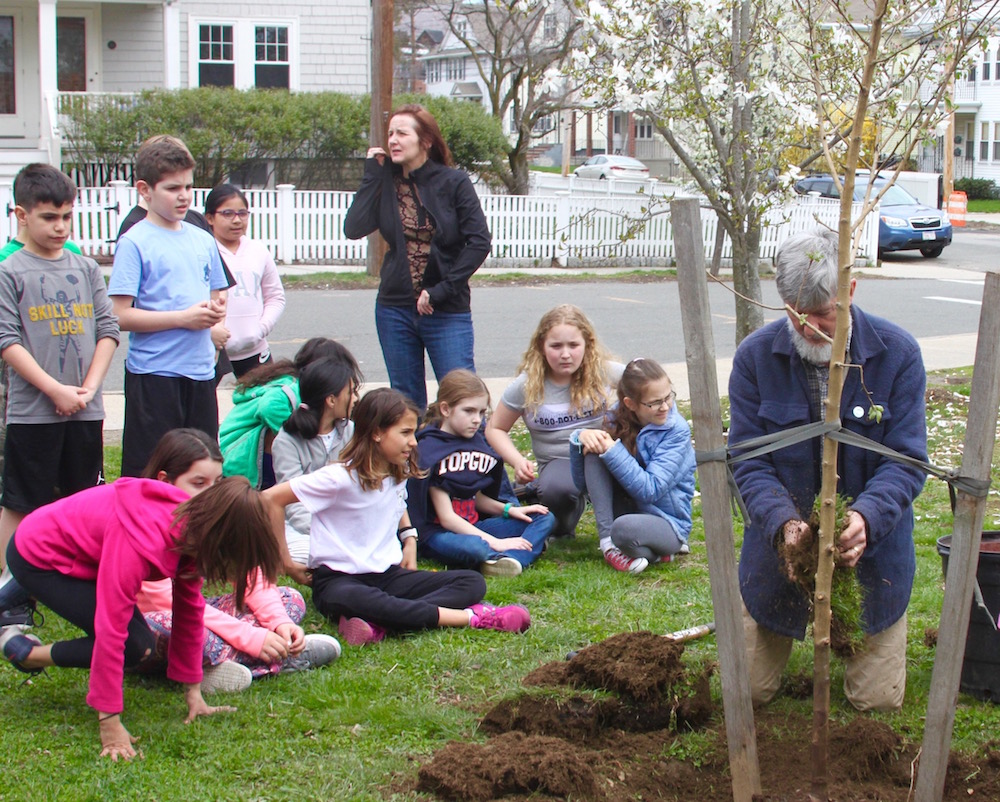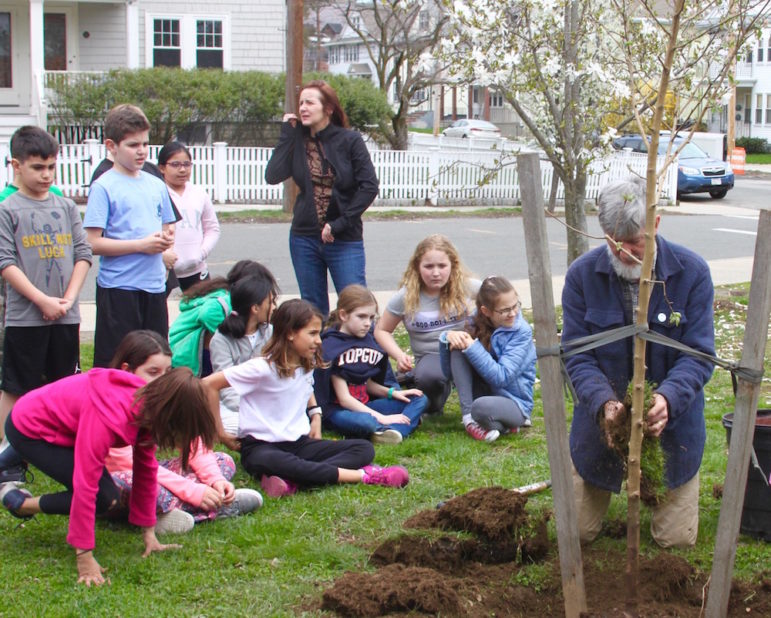
Charlie Breitrose
Watertown resident David Jay finishes planting a dwarf apple tree outside Hosmer Elementary School in honor of Arbor Day.
Rarely does a tree get so much attention, but this week a group of 80 fourth graders from Hosmer Elementary School crowded around a young tree, freshly planted outside the school in honor of Arbor Day.
Watertown resident and landscape architect David Jay organized the event, and made sure each of the students left with a sapling to plant in their own yard.
In past years, Watertown’s Tree Warden organized tree plantings at the town’s elementary schools, but there is no warden at the moment. Jay stepped in this year on behalf of Trees for Watertown, a citizens group which advocates for trees.
The dwarf apple tree was in place by the time many students arrived, but a group of children helped Jay remove the grass around the tree, making sure to shake the dirt from the sod back onto the ground around the tree. Then the students shoveled mulch around it.
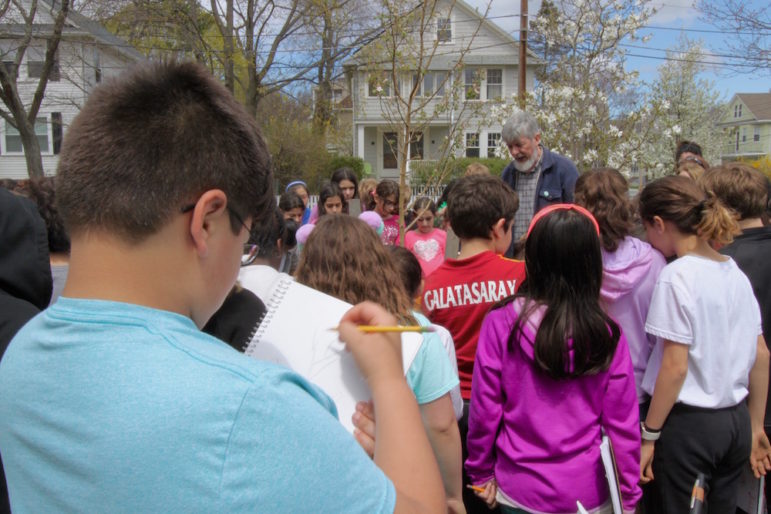
Charlie Breitrose
A Hosmer Elementary School student draws a picture of the new tree planted outside the school this week.
Jay shared his love for trees with the pupils at Hosmer, and listed some of the benefits.
“They’re beautiful. Some have flowers. Their leave provide shade and can cool your house. They soak up water and manage where puddling happens,” said Jay, who added that they also provide food and places to live for birds and animals.
Jay told the children to remember to make sure this tree and others get enough water.
“They need water when there is no rain for weeks and weeks,” Jay said. “Even the trees on the street in front of your home need water. So help them.”
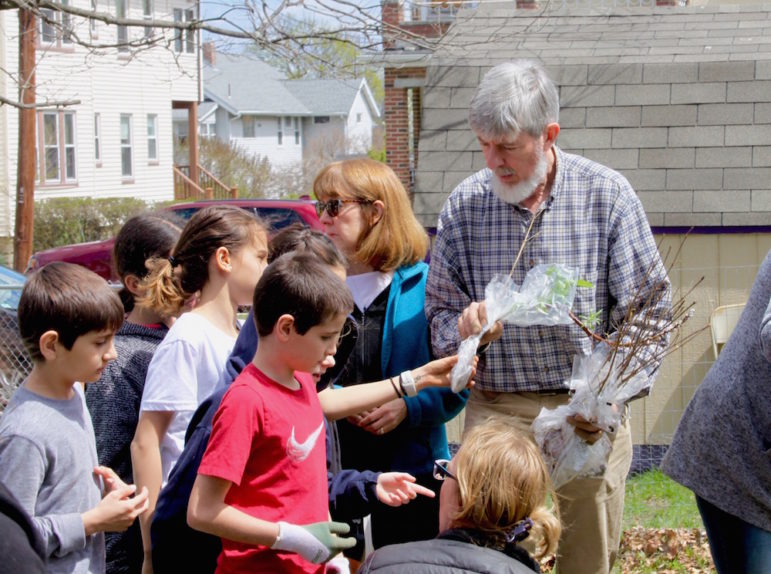
Charlie Breitrose
Students each received a sapling to plant at the Arbor Day event at Hosmer School.
Before the students went back to class, they got to take a small tree — stick thin and about one foot tall. They had their choice of a dogwood or a willow. Jay got the trees from the Massachusetts Tree Warden and Foresters Association for the event.
The tree planting was part of the elementary school curriculum, said Judy Fallows, the district’s School Garden Coordinator. Other grade levels have different activities in the school garden.
“Each grade has a responsibility to plant something in the garden … The first graders plant snow peas, the kindergartners plant beans, second graders plant flowers, and the fifth graders are doing composting next year,” Fallows said. “Lowell (Elementary School) started composting left overs from the cafeteria and snacks, and next year it will be part of the curriculum.”
In the third grade, students study the Three Sisters Garden. They grown three key crops — corn, beans and squash — that were grown by Native Americans and which grow successfully together in the same plot.
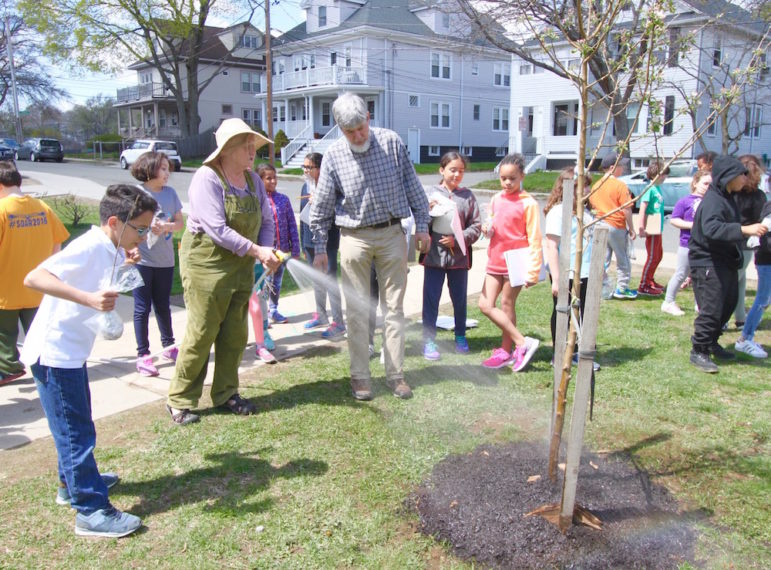
Charlie Breitrose
Judy Fallows, School Garden Coordinator for the Watertown Schools, waters the newly planted tree as David Jay of Trees for Watertown and Hosmer School students look on.
